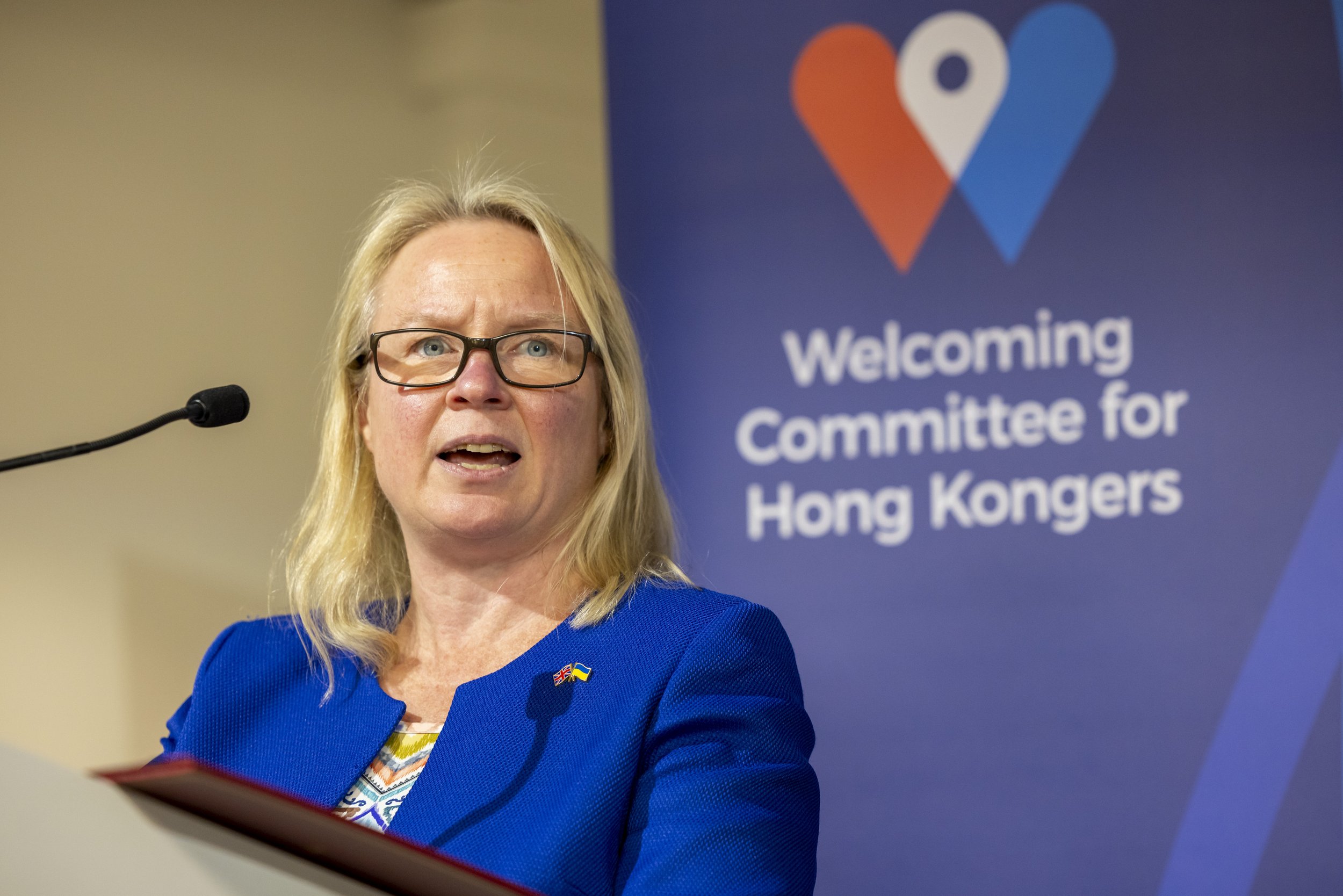Report from the Welcoming Hong Kongers Annual Conference 2023
Minister Felicity Buchan of the Department for Levelling up, Housing and Communities offered her thanks to all those “helping to welcome our new friends and neighbours from Hong Kong” to the UK, and to Hong Kongers “for choosing to make Britain your home,” as they gathered at the Welcoming Hong Kongers Annual Conference in London.
She announced renewed DLUHC funding for the Hong Kong Welcome programme, as attendees from civil society, local government, faith, culture and business came together to discuss the challenges facing Hong Kongers in Britain and the work taking place across the country to help them settle here. More than 160,000 Hong Kongers have now made their homes in Britain during the first two years of the BN(O) visa scheme.
Yuan Yang of the Financial Times chaired an opening panel examining how Hong Kongers are finding employment that suits their skills or starting their own business. Hannah Brooke of Renaisi said that Hong Kongers have skills that the UK needs. Help to build their confidence in English language, and advice on how to use platforms like LinkedIn to connect with employers, can help unlock their potential. Victina Tse of the Hong Kong Business Hub added that 30% of Hong Kongers are considering setting up their own business, and so need a different kind of support.
Florence Cantle of the Hong Kong Nursing Association UK discussed the opportunities offered by public sector employers like the NHS; while Heather Rolfe of British Future spoke about the non-economic benefits of Hong Kongers finding decent work – including meeting people, boosting wellbeing and learning more about British culture.
Following the panel, a dialogue session discussed the challenges for Hong Kongers seeking to preserve their culture while also integrating into UK society. Gloria Chan from Green Bean Media talked about the tensions that can arise in families when there is a difference in the pace of integration between generations. Isaac Cheng of Hong Kong March pointed out the importance of making Cantonese interesting for children to preserve Hong Kong culture, as language is a crucial element in learning this heritage.
An afternoon session, chaired by Diana Sutton of the Bell Foundation, discussed the challenges facing young people in the UK education system. Shirley Yam from Hong Kong Well UK drew attention to mental health issues for Hong Konger students and how they can often be overlooked. Parents can sometimes downplay issues due to stigma in the community about discussing mental health; and teachers may not always identify children as needing support if Hong Konger students are not causing trouble in class or falling behind with their work.
John Knowles of Broadoak School, Greater Manchester, spoke of how his school has adapted after a rapid increase of students from Hong Kong, who now make up 1 in 6 pupils. Developing strong pastoral systems, involving parents and appointing a Hong Konger staff member as a “bridge between home and school,” had all paid dividends, he said. The school had also started offering Chinese language as a GCSE subject – a point echoed by panelist Dr Virginia Lam of Roehampton University, who said that maintaining students’ heritage language – in this case Cantonese – had been found to have significant benefits for mental health and adjustment to a new home. Lily Tang-Gentile of Comberton Village College, Cambridgeshire, also spoke from experience of supporting all Hong Konger students and parents at her school. She emphasized the need to encourage students to see school life as about more than just academic results and to embrace other activities that would help them settle in.
A final panel – Jacqui Broadhead from COMPASS at the University of Oxford, Simon Cheng of Hongkongers in Britain, Cambridgeshire County Councillor Alex Bulat and Stan Beneš from Opora, which focuses on resettlement of Ukrainian refugees – looked at the wider picture, including what lessons can be learned from work with Hong Kongers and applied to welcoming other groups of new arrivals to the UK. They discussed the benefits of taking a proactive approach to integration; re-purposing resources across programmes to avoid ‘reinventing the wheel’; and the importance of engaging new arrivals with civic and democratic participation at local level.
Closing the conference, Sunder Katwala, Director of thinktank British Future, said that the "quiet success story" of Hong Kong arrivals in Britain reflected not just the breadth of cross-party and public support for the BN(O) visa but also that the welcoming programme had seen an innovative, shared effort from government and civic society to work on welcoming from the start. We can take encouragement from the achievements of the programme to date, he suggested – while committing to keep up the work of welcoming to meet the many challenges that still remain.







